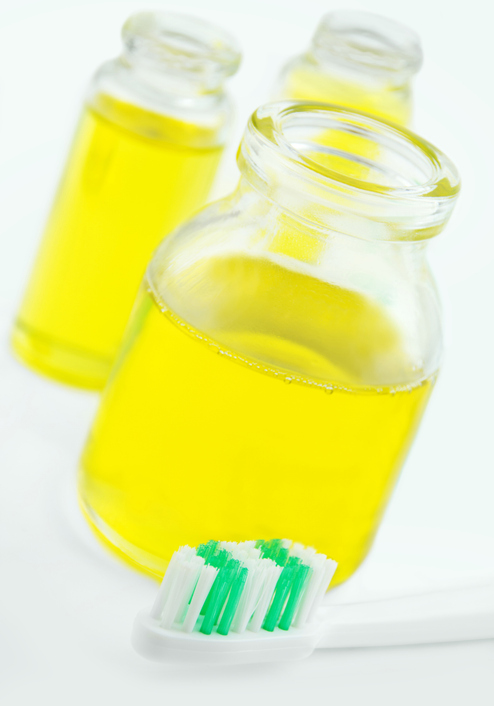Alcohol addiction or Alcohol use disorder (AUD) is a condition that occurs when a person has an addiction to Alcohol. The addiction impacts their everyday life and can lead to severe problems like traumatic accidents, liver damage, and social isolation.
Some of the symptoms of alcohol addiction include:
- Intense cravings for alcohol lead you to seek out alcohol over and over again, even when you know it’s causing problems for you
- Withdrawal symptoms like nausea, anxiety, or shakiness when you stop using or drink less than usual
- And a physical dependence on alcohol like being unable to feel normal without alcohol in your system.
- Alcohol abuse can severely affect a person’s emotional, physical and spiritual health. Those who quit need a lot of time to cope with the addiction.
The current methods for treating alcohol addiction or drug side effects consist of inpatient rehabilitation, outpatient therapy, prolonged commitment to the 12-step model of drug and alcohol recovery and, often, pharmaceutical drug treatment. Nonetheless, it is effective for only a minority and is criticized for its ineffectiveness.
The holistic approach focusing on natural ways offers more options than traditional pharmaceutical medicine. It encompasses everything from examining your genetic predisposition to addiction, holistic nutrition, cognitive behavioural therapy, spiritual counselling, therapeutic massage, acupuncture and reflexology; to group therapy and family counselling. It is a complete way of addressing the patients’ long-term benefits.
Here are a few natural ways to treat alcohol addiction
This article will focus on deaddiction through Herbal medicine, nutrition, meditation, and light therapy.
Herbal medicine:
Some people have used herbal supplements to overcome alcohol dependence. A survey revealed that up to 8% of individuals in the United States take herbal supplements to treat alcohol addiction.
Milk thistle
Is milk thistle good for heavy drinkers?
The use of plant components and derivatives for alcohol abuse has already gained great significance in the West. It has long been part of the Chinese, Indian and Native American medical traditions. The herb has been used for medicinal purposes for centuries; Many ancient medical texts cite its importance in connection with various liver ailments, including cirrhosis, hepatitis, and fatty liver disease such as non-alcoholic steatohepatitis (NASH).
Milk thistle’s reputation as a liver protector dates back to the ancient Greek physician Hippocrates. He prescribed milk thistle to treat fever, digestive issues, kidney problems, and bladder infections. There is evidence that physicians used this herb throughout the Middle Ages to treat jaundice, snake bites, constipation, and severe bleeding after childbirth. Hence, we can undoubtedly say that milk thistle is good for heavy drinkers in alcohol addiction therapy.
In modern times, herbalists touted milk thistle as a powerful and effective treatment for various illnesses among individuals with chronic diseases looking for natural ways to protect their livers from environmental toxins.
To confirm the full impact of milk thistle on liver health and to explore its main active ingredient – silymarin – researchers from various countries conducted a clinical study analyzing the effects of milk thistle extract on patients with chronic hepatitis
St. John’s wort (Hypericum perforatum)
In rats, St. John’s wort reduced alcohol intake, but there is scant evidence that this natural remedy can have a similar impact on human subjects.
This herb augments central serotonin levels, improves mood and energy, and supports immunity. You should not combine with antidepressant medications because of the danger of excess serotonin (serotonin syndrome) release. However, it can otherwise be taken 300 mg three times daily, in tablets or capsules standardized to a 0.3% hypericin extract.
Ashwagandha
Some have used ashwagandha to help prevent cravings and anxiety associated with alcohol withdrawal, but its impact on seizure threshold is not established yet. There’s currently no convincing evidence in human subjects supporting its treatment of alcoholism.
One of the adverse effects of alcohol withdrawal is sleeplessness. People living with alcohol use disorder are at a higher risk for sleep disorders, such as insomnia.
Light therapy
Bright-light therapy, also known as phototherapy, could be the future of alcohol addiction therapy. It utilizes bright, artificial light during waking hours. Few medical experts recommend Light treatment for seasonal affective disorder (SAD). The benefits of this method are twofold for people who have an alcohol addiction. The light can reduce depression and promote a more natural sleep cycle.
A case study presents an interesting question: Is laser therapy an effective alcoholism treatment?
A team of researchers studied the results of 53 alcoholics who underwent a four-session series of laser treatments. Each session consisted of twenty total sessions of helium-neon laser neck biostimulation and auricular acupuncture treatments with argon laser. The Beck Depression Inventory Fast Screen (BDI-FS) was administered to individuals before each session, two months after the last session, and at three, six, and twelve months follow-up.
[FYI: BDI-FS is a self-report instrument to analyze the severity of depression in normal and psychiatric populations]
In addition, beta-endorphin plasma concentration was estimated five times using the radioimmunoassay method. The researchers found an improvement in BDI-FS and an increase in beta-endorphin level. These results suggest that laser therapy can be helpful as an adjunct treatment for alcoholism.
Also, Boston University researchers studied the benefits of bright-light therapy and a medication called naltrexone in helping people overcome their alcohol use disorder. They found that this regimen was as effective as intensive substance use treatment programs.
Meditation
Alcohol dependency is a disease, and it can be hard to break the cycle of addiction—a significant factor in quitting drinking may be how you cope with stress.
Meditation can be a means to help people cope with specific stressors; however, this is not likely a cure-all for alcohol dependency.
Meditation involves focusing on the breath, or sometimes you may choose to chant or repeat a positive affirmation in your mind. For example, you could affirm: “I am living a healthier lifestyle”, “I’m free from alcohol addiction”. You can also use visualization techniques to picture yourself overcoming alcohol addiction. You can envision how you would feel when you successfully quit.
In an interview, meditation teacher Helen Evans from Cardiff, UK, explained this positive effect’s physiological and psychological reasons.
A meta-analysis of scientific studies on different treatments for alcohol abuse showed that the effect of Transcendental Meditation (TM) on reducing alcohol consumption was 1.5 to 8 times greater than that of other programs, including relaxation programs, driving-under-the-influence interventions, and other prevention programs combined. Refer http://www.medscape.com/viewarticle/806075
It is also described as a simple and easily applicable technique as anyone can learn quickly and practice in one’s own home without any special equipment.
You can learn more about meditation from the previously published article from my blog: https://holisticallysane.com/1070-2/
Nutritional counselling
Alcohol addiction interferes with the way your body uses nutrients, according to the National Institute on Alcohol Abuse and Alcoholism (NIAAA). It can lead to malnutrition, which causes fatigue, brain fog, and a weakened immune system. Doctors use nutritional therapy to help you feel better. Nutritional counselling can help you identify which foods are most beneficial for you.
One way to treat alcohol addiction is with vitamin and mineral supplements. Most people who have been abusing alcohol for extended periods will have depleted their B-vitamins and chromium levels. They may also be deficient in magnesium, potassium, or other minerals. Supplementing the diet with these nutrients can be very beneficial in maintaining sobriety and stabilizing moods.
Alcoholics can benefit from vitamin and mineral supplements. Many clinicians recommend a high-potency multivitamin, B-vitamins, and chromium to support detoxification. Chromium is essential in this regard and is generally depleted after a period of drug or alcohol abuse; 200 mcg (micrograms) two or three times daily is a general recommendation.
Individuals with medical conditions such as diabetes should consult their doctor before taking a vitamin supplement if they have not already done so.
Other treatment options
There are many other ways to treat alcohol addiction, including:
Quitting “cold turkey.”
Slowly cutting back on drinks
Participating in professional medical detoxification or detox programs
yoga and acupuncture





Right here is the perfect webpage for everyone who would like to understand this topic. You understand a whole lot its almost tough to argue with you (not that I really will need toÖHaHa). You certainly put a fresh spin on a subject that has been discussed for a long time. Wonderful stuff, just excellent!